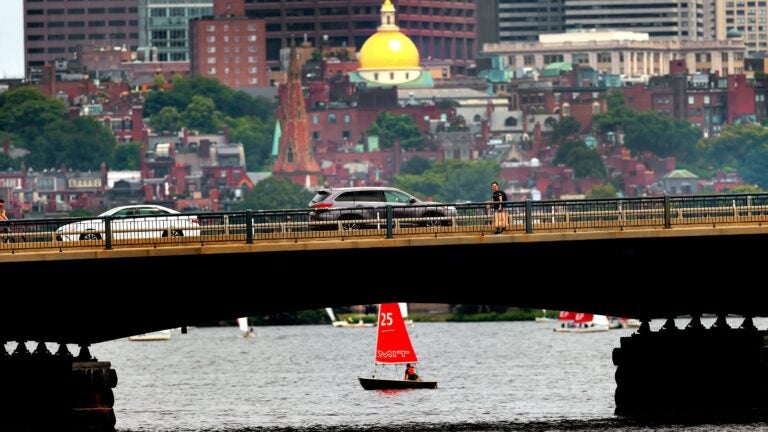
"Cyanobacteria, also known as blue-green algae, produce toxins that can make people and pets sick. Residents are urged to avoid contact with the water and any areas of algae concentration, even on shore."
"The Boston Public Health Commission revealed that cyanobacteria levels exceed state guidelines for recreational waterbodies in Massachusetts."
"People who come in contact with the algae are at risk of experiencing skin or eye irritation, breathing problems, vomiting, and diarrhea. In severe cases, liver, kidney, or neurological issues are possible."
"Officials have warned that pets face similar risks and even death if they drink or swim in the contaminated water."
Boston public health officials warn of a dangerous cyanobacteria bloom in the Charles River downstream of Massachusetts Avenue and the Harvard Bridge. The bloom exceeds state guidelines for recreational waterbodies, prompting a warning against water activities in the area, including swimming, fishing, and boating. Contact with the algae poses risks of skin irritation, breathing issues, and gastrointestinal distress, as well as more severe health problems. Pets are also at risk, with several documented dog deaths due to exposure to the toxins.
Read at Boston.com
Unable to calculate read time
Collection
[
|
...
]